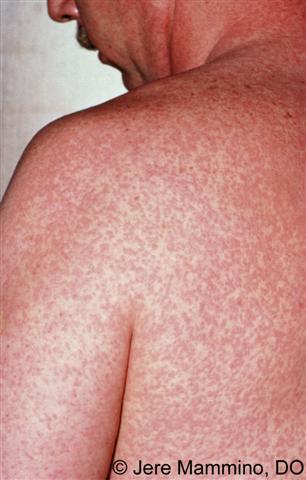
What is urticaria? Hives are small, red, welt-like bumps on the skin. They occur in response to an allergen. Sometimes, they develop spontaneously. Other times, they happen in response to certain foods. In either case, the rash can last anywhere from one to 24 hours and will go away on its own. For more information on hives, visit your doctor. Here are some common causes and symptoms of urticaria.
The most common symptom of urticaria is a rash that looks like a pimple. Typically, it is a round or oval red or white spot. These bumps are itchy and can swell the affected area. These rashes may be excoriated. Children with urticaria may also experience a burning sensation or trouble breathing. Some causes of urticaria include exposure to sunlight, dust, insect stings, and medications.
About twenty percent of people will experience urticaria at some point in their life. It is a rash that affects the skin and can be very uncomfortable. Women are more likely to develop hives than men. Hives change size and location quickly, lasting up to 24 hours. They can be alarming at first, disappear by noon, then reappear later in the day. However, if the rash persists, it is likely a sign of a more serious allergic reaction.
What causes urticaria? Symptoms of urticaria may range from itchiness to difficulty breathing, as well as swelling of the face, lips, and ears. Some people experience a temporary bout of hives and then experience a relapse. The most common causes of a flare-up of urticaria are sunburn, hepatitis, thyroid disease, and exposure to certain foods and chemicals.
Physical urticaria is usually caused by rubbing or scratching the affected area. Symptoms usually disappear within an hour or two. Delayed pressure urticaria is caused by constant pressure on certain parts of the body. Cold uricaria can be caused by sudden exposure to cold temperatures. This form of hives can be very painful and can lead to rashes on various parts of the body.
To diagnose a case of cold urticaria, you must perform an ice cube test. This is a simple procedure in which the health care provider puts an ice cube on your hand for 5 minutes. If the skin reacts to ice, it becomes red and irritated. The symptoms of ice urticaria are different for each patient. In some cases, site https://vamonosdebodorrio.com/ may recommend any particular treatment.
The symptoms of urticaria may be mild, or they may be persistent. Once diagnosed, the condition will usually go away on its own, but if the cause of the urticaria is unknown, it can recur. If the symptoms of urticaria continue to persist, the doctor should be consulted as soon as possible. This will help prevent the rash from becoming more severe. The hives are often caused by an allergic reaction to a certain food or a substance.
The symptoms of urticaria are triggered by allergic reactions. Histamine causes the capillaries to leak fluid and urticaria appears as a red, itchy rash. In severe cases, urticaria can be permanent, but most cases do not require treatment. If the symptoms are mild, antihistamines can be taken over the counter from a pharmacy. If the condition is more severe, the person should consult their GP. The doctor may prescribe a short course of corticosteroid tablets.
Urticaria is a group of skin conditions that are characterized by persistent pink swelling on the skin. The hives can be pea-sized or large, and they can be anywhere on the body. These symptoms are often painful and itchy, and can even affect the deeper tissues. The most common symptoms of urticaria are itching, burning, and tightness in the chest. In severe cases, it can be life-threatening.
In addition to the trigger, the urticaria is caused by chemicals released by the human mast cell. These chemicals cause the skin to respond to a variety of factors, including sunlight, heat, and mechanical pressure. The hives are triggered by physical stimuli, such as scratching, or when the affected person is exposed to water of any temperature. In this case, the body temperature rises and the hives are due to the heat.
About the author